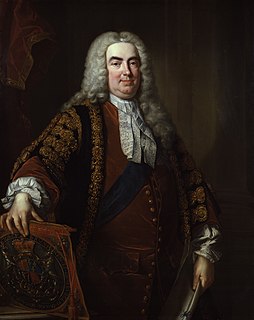A Quote by Edward Coke
There must have been good grounds for belief in witchcraft; otherwise Parliament would not have legislated against it.
Quote Topics
Related Quotes
Parliament is not a congress of ambassadors from different and hostile interests; which interests each must maintain, as an agent and advocate, against other agents and advocates; but parliament is a deliberative assembly of one nation, with one interest, that of the whole; where, not local purposes, not local prejudices ought to guide, but the general good, resulting from the general reason of the whole. You choose a member indeed; but when you have chosen him, he is not a member of Bristol, but he is a member of parliament.
If you have a belief and you come against an experience which the belief says is not possible, or, the experience is such that you have to drop the belief, what are you going to choose — the belief or the experience? The tendency of the mind is to choose the belief, to forget about the experience. That’s how you have been missing many opportunities when God has knocked at your door.
I do not believe that a world without evil, preferable in order to ours, is possible; otherwise it would have been preferred. It is necessary to believe that the mixture of evil has produced the greatest possible good: otherwise the evil would not have been permitted. The combination of all the tendencies to the good has produced the best; but as there are goods that are incompatible together, this combination and this result can introduce the destruction of some good, and as a result some evil.
If it is to be established that there is a God, then we have to have good grounds for believing that this is indeed so. Until and unless some such grounds are produced we have literally no reason at all for believing; and in that situation the only reasonable posture must be that of either the negative atheist or the agnostic. So the onus of proof has to rest on the proposition of theism.
Sometimes people hold a core belief that is very strong. When they are presented with evidence that works against that belief, the new evidence cannot be accepted. It would create a feeling that is extremely uncomfortable, called cognitive dissonance. And because it is so important to protect the core belief, they will rationalize, ignore and even deny anything that doesn't fit in with the core belief.
It does not suit the world to hear that people who are leading a high life, an enviable life, a privileged life are as miserable most days as anybody else, despite the fact that it must be obvious they would be - given that we are all agreed that money and fame do not bring happiness. Instead the world would prefer to enjoy the idea, against what it knows to be true, that wealth and fame do in fact insulate and protect against misery and it would rather we shut up if we are planning to indicate otherwise.



































